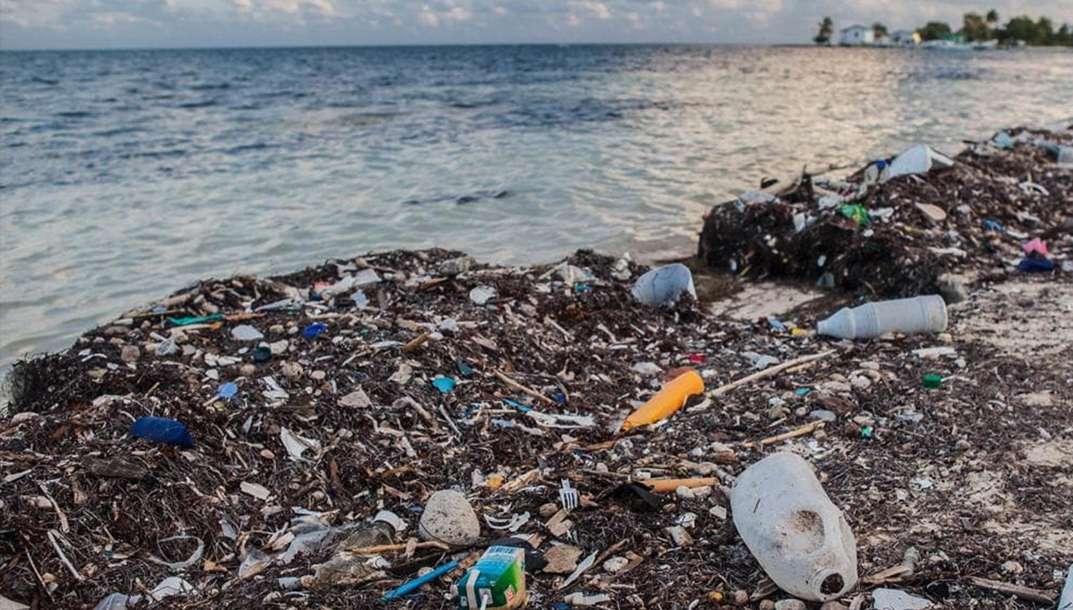The oceans, characteristic elements of the Blue Planet, tend to be transformed into open-air dumping grounds. The WWF alerts people to the amount of plastic currently polluting the oceans: “According to estimates, between 4.8 and 12.7 million tons of plastic waste, the majority of which comes from South-West Asia, reach the oceans every year. In total, at least 86 million tons of plastic are already cluttering our seas, much of it having already sunk to the bottom. This figure does not include the microplastics that pollute rivers and oceans, such as those caused by the wear and tear of car tires, the washing of synthetic textiles or the degradation of plastic waste – nor does it include the small plastic particles contained in cosmetic products” (WWF, 2021).
These alarming figures have mobilized the scientific community for several years now, with calls for an international agreement to address this issue. Any such agreement would extend, complement, and also challenge existing international, regional, national, sub-national, and local initiatives (HAWARD, 2018). For example, in 1967, calls for a refocus on the ‘common heritage’ of the world’s seas and oceans led to concerted and revolutionary action by the world community to address concerns and challenges. In late 2017, the United Nations Environment Assembly resolution on marine plastic pollution serves a similar purpose (HAWARD, 2018).
Fertilizers, pesticides, chemicals: the oceans are being collected with many harmful substances. Fertilizers used in the fields are a major problem on the shoreline. Surface runoff carries them into rivers, which in turn carry them to the sea. There, they cause over-fertilization that can lead to algae blooms. As a result, the amount of oxygen released into the water decreases and many marine organisms suffocate. This leads to large dead zones, where no more life is possible – a phenomenon that can be observed, for example, in certain regions of the Gulf of Mexico or the Baltic Sea (WWF, 2021).
But the coastline is not the only victim: the majority of living beings (marine or not) are contaminated by chemicals in the oceans. Insidious, ocean pollution contributes to cases of infections, food poisoning, such as ciguatera, a recurring concern in the Caribbean, or even cholera, as off the coast of Yemen (AFP, 2020). “Methylmercury and PCB pollution in seafood can damage children’s developing brains. Adult exposures to methylmercury increase risks for cardiovascular disease and dementia. Manufactured chemicals in seafood – phthalates, bisphenol A, flame retardants, and perfluorinated chemicals – can disrupt endocrine signalling, reduce male fertility, damage and increase risk of cancer. Harmful Algal Blooms (HABs) produce potent toxins that accumulate in fish and shellfish and cause severe neurological impairment and rapid death” (MARTIN, 2020).
On December 2 and 3, 2020, in Monaco, the « Symposium on Human Health and the Ocean in a Changing World” concluded nearly two years of synthesis work on the subject conducted by the Monaco Scientific Center and Boston College with the Prince Albert II of Monaco Foundation. The report calls on world leaders and citizens around the world to “recognize the seriousness of ocean pollution and its growing dangers » (Oceanographic Institute, 2020).
Ocean pollution can be prevented. Control requires deploying data-driven strategies based on law, policy, technology, and enforcement. Prevention of ocean pollution boosts economies, increases tourism, helps restore fisheries, and improves human health and well-being (MARTIN, 2020).
REFERENCES :
AFP., GEO. (2020). Beyond plastic waste, ocean pollution is “silently increasing”. Environment.
HAWARD, M. (2018). Plastic pollution of the world’s seas and oceans as a contemporary challenge in ocean governance. Nat Commun 9, 667
MARTIN, K. (2020). Human Health and Ocean Pollution. Annals of Global Health.
Oceanographic Institute. (2020). Ocean and Human Health Symposium. https://www.oceano.org/monaco-voix-de-locean/symposium-ocean-et-sante-humaine/
WWF. (2021). Marine pollution. https://www.wwf.ch/fr/nos-objectifs/pollution-marine

